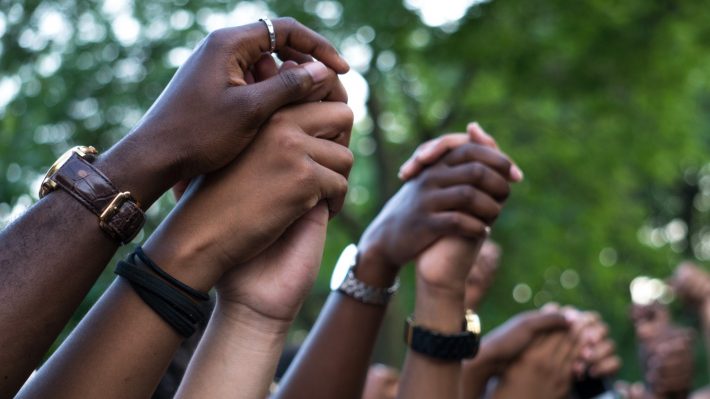Our commitment to address inequalities
A statement from the Equality and Diversity Working Group of the British Ecological Society.

In light of recent world events the British Ecological Society (BES) would like to express our support for the Black community and echo the voices around the world saying Black Lives Matter.
We acknowledge that there is systemic under-representation of Black people in the ecological sciences. Recent events have magnified the importance of reflecting on what is happening across the UK and the rest of the world, and we acknowledge that we have lessons to learn.
The BES believes fundamentally in diversity and inclusion in ecology and has a strategic aim to foster a strong and diverse ecological community. We need to ask ourselves:
- How well are the voices of Black members within the BES being heard?
- Do our staff, our Board of Trustees, editorial boards, committees and working groups represent Black and other minority ethnicities?
- We have been building momentum in our Equality, Diversity and Inclusion work: how will we sustain this momentum?
- Ultimately how inclusive are we and what more do we need to do to support the ecological community?
We will reflect on these questions and others over the coming months and we commit to taking appropriate action.
Acknowledging inequality
It is important that everyone should have equality of access to education and opportunity to pursue their personal and professional ambitions. Post-PhD, there are very few Black ecologists and minorities of all ethnicities – even fewer whose school education and early careers took place in the UK – and there is lower representation in ecological sciences than elsewhere in the sciences.
Racial inequality at all education and career stages is very well documented. The latest available data (pdf) from the UK’s Natural Environment Research Council from 2015–2016 reported that only 1% of researchers, from PhD students up to principal investigators were Black, and only 6% of people starting studentships in 2016/7 identified as Asian/Black/Chinese/Mixed/Other.
We believe we need multiple approaches to increase the diversity of ecologists from school age to early career through to all levels of seniority. We must reach out to and welcome People of Colour into the ecological community and ensure that throughout their careers they continue to feel welcome, heard and supported.
Taking action
The BES 16–18 Summer School was set up in 2018 to show people aged 16–18, particularly those from under-represented communities, the wonderful opportunities they might find in pursuing an ecological career. We put them in touch with the researchers who inspire them and provide a framework of support for those deciding to pursue undergraduate courses in ecology and allied sciences. We work directly with their teachers to make ecology in school curricula more relevant both nationally and internationally.
We are committed to ensuring that recruitment to our Board of Trustees, editorial boards, committees, working groups and staff has better representation of all communities.
We have taken steps to ensure that Black and other under-represented voices are heard at our meetings and events through plenary talks and keynote addresses, and we will increase our efforts in these areas.
In 2019 the Equality and Diversity Working Group led the work to open up the challenging conversations we need to have about all inequalities, particularly racial inequalities, and to acknowledge the specific challenges facing ecology and ecologists.
Valuing diversity
The serious ecological problems humanity now faces cannot be solved unless we value diversity in our science, working environments and communities. We can be more inclusive by appreciating that diversity, seeing beyond ourselves and inculcating genuine exchanges around equality, diversity and inclusion. We can only do this by creating safe and supportive spaces for everyone to come together and work together.
Black voices and the voices of all People of Colour should be heard at greater volume within and beyond the BES. We are determined to hear you. We’ve done some work to identify and resolve barriers to progression for Black and ethnic minorities within ecology, but there is far more to do.
We invite and welcome all comments to have a conversation about what we can do better and how we can work together to reduce inequalities. Please do get in touch with the Equality and Diversity Working Group through:
Chief Executive Officer, Hazel Norman
Head of External Affairs, Karen Devine
Like what we stand for?
Support our mission and help develop the next generation of ecologists by donating to the British Ecological Society.